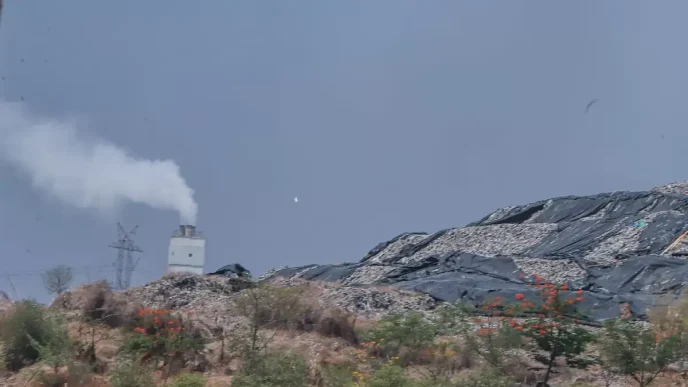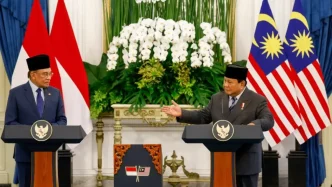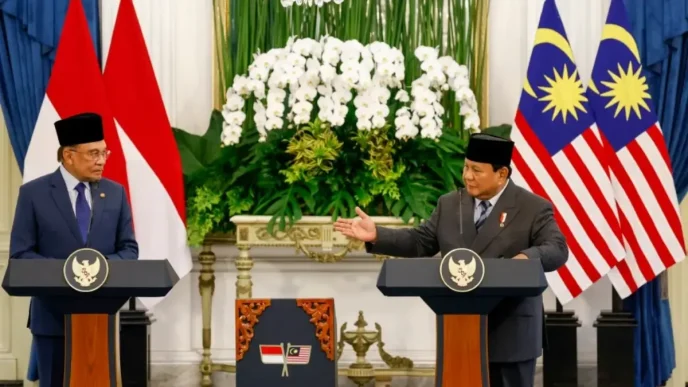In a significant display of regional diplomacy, Malaysia has successfully mediated a ceasefire between Thailand and Cambodia, halting a deadly border conflict that has claimed at least 40 lives and displaced over 300,000 people since violence erupted on July 24, 2025. The peace talks, held on July 28 in Putrajaya, underscored ASEAN’s critical role in fostering stability in Southeast Asia, with Malaysian Prime Minister Anwar Ibrahim emerging as a key architect of the truce.
A Fragile Peace Amid Rising Tensions
The border clashes between Thailand and Cambodia, which intensified over a disputed frontier region, had become a pressing concern for the entire ASEAN bloc. With civilian casualties mounting and the risk of further escalation looming, Malaysia, in its capacity as ASEAN chair, stepped in to host emergency talks. The negotiations brought together Cambodia’s Prime Minister Hun Manet and Thailand’s Acting Prime Minister Phumtham Wechayachai, resulting in an immediate and unconditional ceasefire agreement on July 28.
Speaking at the ASEAN Secretariat in Jakarta on July 29, Anwar Ibrahim described the mediation as both vital and necessary. “I spoke to both leaders, took care to listen to their perspectives, and urged them to find common ground in the interest of ensuring no more lives were lost” he said. The Malaysian leader also acknowledged the involvement of international partners, noting the participation of representatives from the United States and China in the talks, which added weight to the diplomatic effort.
The ceasefire was further solidified on July 29 when Thai and Cambodian military commanders held follow-up discussions, agreeing to maintain the truce and refrain from deploying additional troops to the border. While the agreement marks a temporary reprieve, the underlying territorial disputes remain unresolved, casting a shadow over the durability of the peace.
ASEAN’s Convening Power in the Spotlight
The successful mediation has been hailed as a diplomatic win for ASEAN, a regional grouping whose relevance has faced scrutiny amid perceived inaction on other challenges, such as the ongoing crisis in Myanmar. Anwar emphasized the importance of unity within the bloc during his address in Jakarta, warning against fragmentation. “We cannot afford an ASEAN that is weak, fragmented, or in conflict with each other – our national fortunes rise or fall with the region” he stated.
The Malaysian prime minister’s efforts have garnered praise from fellow ASEAN leaders, with Singapore and Indonesia publicly commending the mediation. At a conference in Singapore on July 29, Prime Minister Lawrence Wong expressed relief at the de-escalation. “I am glad that with Malaysia’s mediation, things have calmed down. Both sides have agreed” Wong said, adding a note of cautious optimism. “We hope that agreement will hold, and both sides will commit to and continue with the ceasefire.”
Similarly, Indonesian President Prabowo Subianto, during a bilateral consultation with Anwar in Jakarta on the same day, described the ceasefire as a very significant breakthrough for ASEAN diplomacy. “This is something we are grateful for” Prabowo remarked, pledging Indonesia’s support for Malaysia’s ongoing efforts to maintain peace in the region.
Further afield, ASEAN neighbor Australia praised Prime Minister Datuk Seri Anwar Ibrahim and Malaysia’s leadership as ASEAN Chair for facilitating the ceasefire agreement. Australia’s Foreign Minister Penny Wong wrote “Australia welcomes Cambodia and Thailand’s agreement to an immediate and unconditional ceasefire. We urge both parties to honour it and work towards a lasting and peaceful resolution”. Wong later acknowledged the role played by US President Donald Trump in the peace effort.
Regional and Global Implications
The ceasefire not only addresses an immediate humanitarian crisis but also reinforces ASEAN’s role as a mediator in regional disputes. The involvement of global powers like the United States and China in the talks highlights the broader geopolitical stakes of stability in Southeast Asia. Malaysia’s ability to bring together diverse stakeholders – from neighboring ASEAN states to international actors – demonstrates the potential for dialogue to prevail over conflict.
However, analysts caution that the truce is merely a first step. The Thai-Cambodian border dispute, rooted in historical claims over territory, has flared up repeatedly in recent decades. Without a permanent resolution, the risk of renewed violence remains. Moreover, the displacement of over 300,000 people, many of whom have lost homes and livelihoods, poses a significant humanitarian challenge for both governments and regional organizations.
Anwar’s leadership in this crisis also signals Malaysia’s growing influence within ASEAN. As chair of the bloc, the country has taken on a proactive role in addressing regional tensions, a move that could set a precedent for future conflict resolution efforts. The Malaysian prime minister underscored this responsibility during his discussions with Prabowo, noting that ASEAN member states, particularly Malaysia, Indonesia, Singapore, Brunei, and the Philippines, would play a key role in monitoring the peace process.
Bilateral Ties and Broader ASEAN Cooperation
Beyond the ceasefire, Anwar’s visit to Indonesia on July 29 for the 13th Annual Consultation provided an opportunity to strengthen bilateral ties between the two nations. The meeting, the first of its kind since 2017 due to delays caused by the Covid-19 pandemic and political transitions in Malaysia, covered a range of issues, including maritime boundaries and labor rights. Both leaders reiterated their commitment to resolving disputes through dialogue and consensus, a principle they see as foundational to ASEAN cooperation.
Prabowo opened the consultation by praising Anwar’s role in the ceasefire negotiations. “I would like to extend my congratulations on the leadership of Datuk Seri Anwar in leading ASEAN” he said, emphasizing Indonesia’s readiness to support Malaysia’s initiatives. The Indonesian leader also highlighted the cultural and historical ties between the two nations as a basis for deeper collaboration. “We are countries with similar backgrounds, cultures, religion, and shared roots” he noted.
A statement from the Indonesian presidential secretariat described the meeting as a milestone in reinforcing bilateral relations and reaffirming both countries’ dedication to regional peace and prosperity. For Malaysia and Indonesia, the consultation served as a reminder of the importance of sustained engagement, especially in a region facing complex security and economic challenges.
Challenges Ahead for ASEAN
While the ceasefire represents a moment of triumph for ASEAN, it also exposes the fragility of regional stability. The bloc has struggled to address other protracted crises, such as the civil conflict in Myanmar, where violence continues unabated despite diplomatic efforts. Critics argue that ASEAN’s consensus-driven approach often hampers decisive action, leaving it vulnerable to accusations of ineffectiveness.
Yet, the Thailand-Cambodia mediation offers a counterpoint to such criticism. By leveraging its convening power, ASEAN has demonstrated that it can facilitate meaningful dialogue, even in high-stakes situations. Anwar’s insistence on unity during his Jakarta speech reflects a broader vision for the bloc – one that prioritizes strategic trust and cooperation over division.
The economic ramifications of the border conflict also loom large. Business groups in the region have expressed relief at the swift resolution, noting that prolonged violence could have disrupted trade and supply chains along the Thai-Cambodian border. The ceasefire, if sustained, could prevent further economic fallout, allowing for the gradual return of displaced communities and the reopening of border crossings.
A Path Forward
As ASEAN navigates an increasingly polarized global landscape, the success of Malaysia’s mediation offers a blueprint for future conflict resolution. The involvement of external powers like the United States and China in the peace talks underscores the interconnected nature of regional and international stability. For ASEAN, maintaining its relevance will depend on its ability to adapt to these dynamics while staying true to its principles of dialogue and mutual respect.
For now, the focus remains on ensuring that the ceasefire holds. With military commanders from Thailand and Cambodia committed to de-escalation, and ASEAN leaders united in their support for the peace process, there is cautious hope that this chapter of violence can be closed. However, the road to a lasting resolution will require sustained effort, transparency, and a willingness to address the root causes of the conflict.
As Malaysia continues to steer ASEAN through turbulent times, the question remains whether this diplomatic victory can inspire broader action on the region’s most pressing challenges. The answer, for now, lies in the hands of leaders like Anwar Ibrahim, whose commitment to dialogue may yet redefine the bloc’s role on the global stage.
















